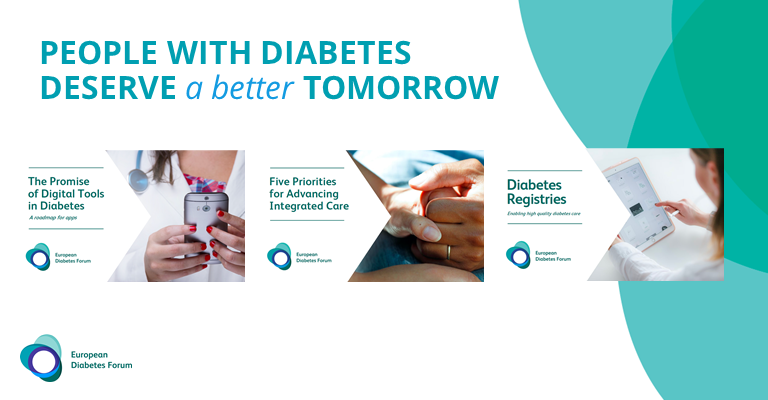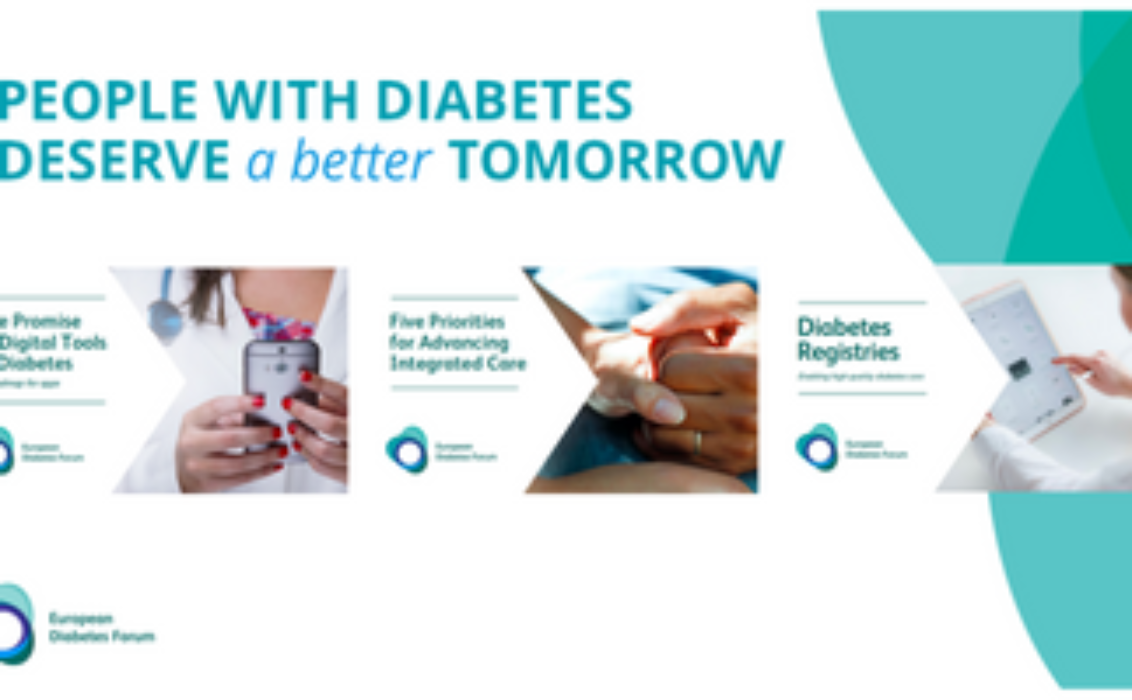Diabetes remains one of the most misunderstood and underestimated of all common medical conditions.
To enhance the quality of diabetes care and improve health outcomes and quality of life for all those living with diabetes, the European Diabetes Forum (EUDF) convened experts from across the diabetes landscape – healthcare professionals, researchers, industry representatives, and people living with diabetes to come up with specific and achievable policy recommendations. These highlight three areas where – if certain steps are taken – progress is readily within reach: integrated care, registries, and digital technologies.
 |
1. Integrated care
Integrated care is an emergent set of practices that seeks to move away from care that is fragmented, episodic, and service-based, towards care that is continuous, coordinated, and outcomes-focused. Healthcare professionals, researchers, industry representatives, and PwD collaborating within EUDF have identified five priorities to make progress in integration of diabetes care:
- Framework to assess integration
- Integrated care pathways
- Education
- Financial incentives
- Implementation strategy
Read more about “Five Priorities for Advancing Integrated Care”
2. Data and registries
Diabetes registries, which collect, track and analyse patient data on parameters ranging from clinical characteristics, risk factor control indicators, diabetes-related complications, and treatments, can become an essential tool for improving the quality of diabetes care and securing better outcomes for people with diabetes when integrated in the diabetes care system.
EUDF recommendations on enabling high-quality diabetes care through the use of data and diabetes registries include:
- Developing procedures and governance models for registries
- Ensuring robust coverage and complete data flow
- Maintaining flexible and adaptable registries
- Developing implementation strategies
Read more about “Diabetes Registries: Enabling high quality diabetes care”
3. Digitalisation
Digital technologies are driving significant changes in healthcare, offering new solutions to assist in preventing, diagnosing and treating chronic diseases. Diabetes is ideally suited to benefit from these types of digital tools, given it is a largely self-managed condition and heavily data-driven. In this context, mobile health applications have the potential to help people with diabetes track the information related to their condition, while also facilitating a more informed and data-driven approach to decision-making from HCPs.
EUDF’s roadmap recommendations for mobile applications in diabetes include:
- Developing a user-centred app
- Developing a best practice access pathway for apps
- Supporting the integration and uptake of high-quality apps into the health ecosystem
Read more about “The Promise of Digital Tools: A roadmap for apps”
 |



